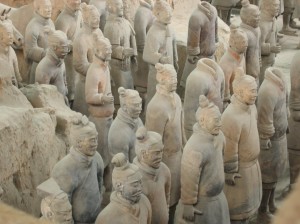“As you navigate through the rest of your life, be open to collaboration. Other people and other people’s ideas are often better than your own. Find a group of people who challenge and inspire you, spend a lot of time with them, and it will change your life.” —Amy Poehler
By Elizabeth Stincelli, DM
Are You Going it Alone?
It’s easy to think that you will be better off if you just do everything yourself. Many times it is fear that prevents you from asking for help. You may fear that you will give more than you get, or that you will share more about yourself than you would like. You may fear having to share your success with someone else. The problem is, you can’t possibly know everything or see situations from every angle. The more you learn, the more you realize there is so much you don’t know. Helen Keller said, “Alone we can do so little; together we can do so much.” You are limiting your chance of success when you insist on going it alone. So where should you start?
Great ideas
Arnold Schwarzenegger said, “I welcome and seek your ideas, but do not bring me small ideas; bring me big ideas to match our future.” The best ideas come from sharing and combining ideas from a diverse, variety of sources. Use technology to access the information and expertise you need from individuals from around the world. Develop a supportive atmosphere that encourages the sharing of ideas without fear of judgment. Ask the question “what if?”. Give everyone the chance to share; you never know where the next great idea will come from.
Relationships
Build relationships. Joyce Meyer explained, “We can improve our relationships with others by leaps and bounds if we become encouragers instead of critics.” Much of your success is dependent on developing strong, authentic relationships. Get to know those you work with on a personal basis. Always be forthcoming and respectful in your interactions. Use the relationships you develop to foster the spirit of cooperation, encouragement, and support that leads uncovering great ideas.
Collaboration
Antony Starr told us, “Collaboration is the best way to work. It’s the only way to work, really. Everyone’s there because they have a set of skills to offer across the board.” Without collaboration, you can get stuck. You need skills and expertise beyond your own to continue to move forward. You have experts from around the world accessible right at your fingertips. The sky is the limit when you learn how to connect and collaborate with others. This collaboration is not about competing against each other, but innovating together to co-create something far beyond your individual capabilities. Identify a need, and then focus on who you need to help you find a solution.
Common ground
Improve your ability to collaborate successfully by finding common ground. Madeleine Albright recognized, “No matter what message you are about to deliver somewhere, whether it is holding out a hand of friendship, or making clear that you disapprove of something, is the fact that the person sitting across the table is a human being, so the goal is to always establish common ground.” People want to work with other people who they know and feel comfortable with. Find commonalities between you and your team members. Collaboration is not self-serving; think about the well-being of the whole not just the few. Create a shared vision where everyone wins. Finding common ground helps you break down interpersonal barriers and reduce the fears that prevent collaboration and block creativity. Learn to embrace the diversity that builds a strong team and encourages the discovery of great ideas.
Not an Army of One
Stephen Covey reminded us, “Synergy is what happens when one plus one equals ten, or a hundred, or even a thousand! It’s the profound result when two or more respectful human beings determine to go beyond their preconceived ideas to meet a great challenge.” Great challenges require great partnering. There is extraordinary power in people working together toward the same goal. Use diverse perspectives to change the way you view the need and the goal. Develop relationships with others; find common ground where you can share your expertise for mutual benefit and discover great ideas together. You never know where the next great idea might be found. You are not an army of one; build a network of experts to share in your exploration new ideas and great possibilities.
© 2014 Elizabeth Stincelli
Elizabeth Stincelli is passionate about recognizing and inspiring the leader in each of us. She is the CEO of Stincelli Advisors where she focuses on helping organizations engage employees and improve organizational culture. Elizabeth holds a Doctor of Management degree with an emphasis on organizational leadership.
Learn more about Elizabeth by visiting her website, stincelliadvisors.com and connect with her on Twitter @infinitestin, Google+, and LinkedIn. You can contact her by email at stincelliadvisors@gmail.com.




